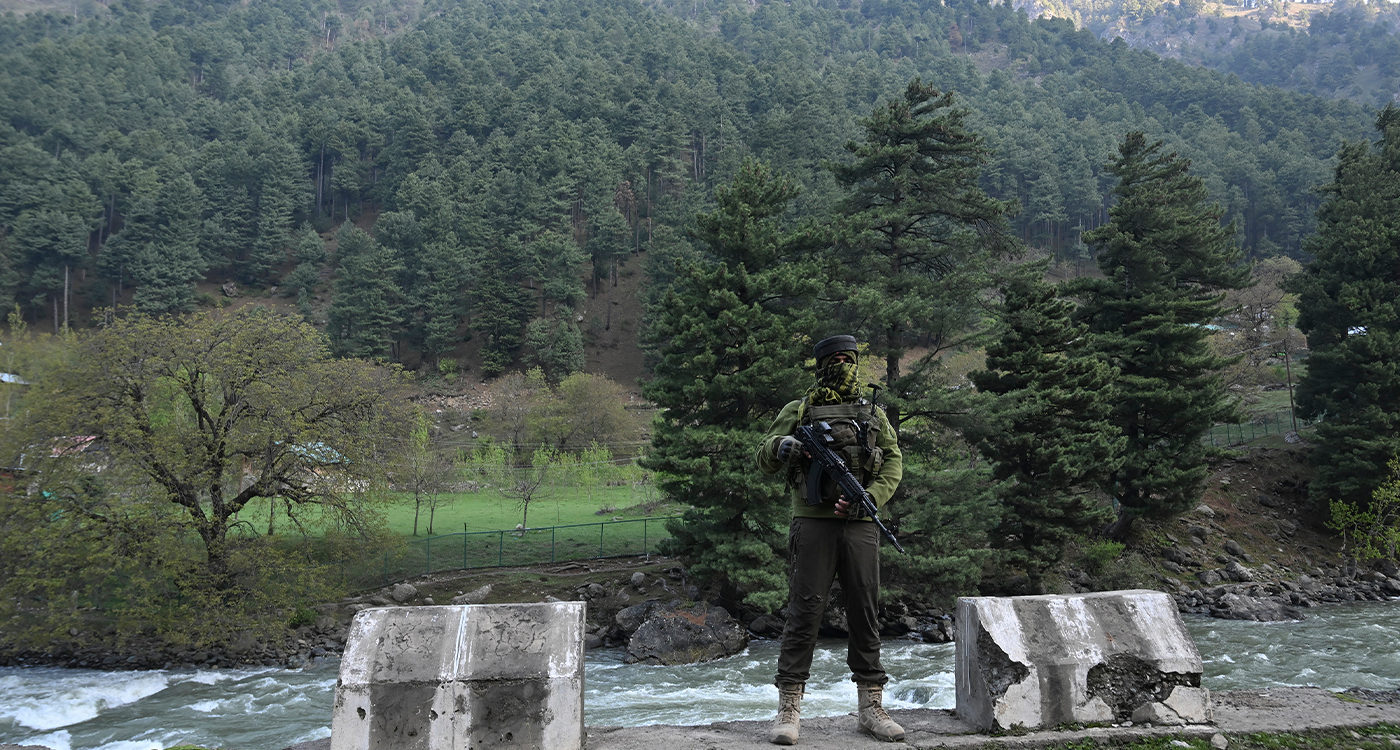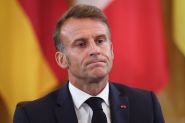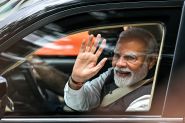- Home
- Middle East
- Violence in Kashmir: A New Test of Strength for the Indian Government?

©TAUSEEF MUSTAFA / AFP
A rare and brutal attack struck the Indian region of Kashmir on Tuesday, when gunmen opened fire on a group of travelers near the popular tourist area of Pahalgam, killing at least 26 people. It marks one of the deadliest assaults on civilians in years, in a region gripped by a separatist insurgency since 1989.
According to initial information obtained by AFP from local security services, the attackers emerged from a forest clearing close to the tourist site and opened fire indiscriminately. A witness, speaking on condition of anonymity, said the gunmen appeared to be targeting men specifically, sparing the women.
The attack has sent shockwaves across the country. Indian Prime Minister Narendra Modi, who cut short his visit to Saudi Arabia to return home, condemned the assault as a “heinous act” and vowed that those responsible would be “brought to justice.” In a statement, he reiterated that India’s resolve to fight terrorism was “unshakable” and would only “grow stronger.”
The international reaction was swift. UN Secretary-General António Guterres “strongly condemned” the attack, emphasizing that “violence against civilians is unacceptable under any circumstances.” US President Donald Trump also expressed his support for India on his Truth Social platform, stating that the United States stands “firmly with India in the fight against terrorism.”
This latest bloodshed comes a day after Indian Prime Minister Narendra Modi met with US Vice President JD Vance in New Delhi, during the latter’s four-day official visit. While no direct link has been established between the diplomatic exchange and the attack, the timing has raised questions.
Interior Minister Amit Shah, who rushed to the scene, vowed that those responsible for what he called a “cowardly act of terror” would not go unpunished. Local leader Omar Abdullah also expressed serious concern, stating that the attack was “far more serious than anything we’ve seen against civilians in recent years.” Rahul Gandhi, leader of the Congress Party, called on the government to “take responsibility,” describing the events as “devastating.”
A Conflict Spanning Eight Decades
Since 2019, when the Modi government revoked Kashmir’s limited autonomy, New Delhi has aimed to project stability in the region, particularly by expanding the tourism sector. In 2024, around 3.5 million visitors—mostly Indian nationals—traveled to the area, drawn by its stunning landscapes. The tourism boom seemed to signal a return to calm, further underscored by the high-security G20 summit held in Srinagar last year.
Beneath this surface calm, Kashmir remains one of the most heavily militarized regions in the world, with 500,000 Indian soldiers deployed permanently. Since 1989, an insurgency led by separatist groups has called for either the region’s independence or its integration with Pakistan. India regularly accuses its neighbor of supporting these rebels—an accusation Pakistan denies, stating that it only supports the Kashmiris' right to self-determination.
The conflict in Jammu and Kashmir dates back to the 1947 partition of India, when the predominantly Muslim region became a point of contention between India and Pakistan. This territorial dispute has sparked several wars and created a state of constant tension between the two countries. In 1989, an armed insurgency emerged, driven by demands for independence or integration with Pakistan. Since then, the region has been plagued by violence, claiming the lives of thousands of civilians and military personnel.
Firmness Defined: The Modi Doctrine
Narendra Modi, known for his strong rhetoric and decisive responses to terrorist attacks, has never shied away from using force. In February 2019, following the Pulwama attack that claimed the lives of 40 police officers, his government authorized airstrikes on Pakistani soil—a first since 1971—targeting what it identified as terrorist training camps. This move led to a major escalation in tensions between the two nuclear powers.
Indian Defense Minister Rajnath Singh also stated on Wednesday that those behind the deadliest attack on civilians in Kashmir since 2000 would face a swift and "unequivocal" response.
The unilateral revocation of Jammu and Kashmir's autonomy in August 2019, followed by a media blackout, mass troop deployment, and widespread arrests, was part of this strategy of total control. For Narendra Modi, a proponent of Hindu nationalism, security is paramount, and any threat to India’s territorial integrity demands a strong, even dramatic, response to reinforce his image as a strong leader ahead of the elections.
The Pahalgam attack may follow a familiar cycle: a tragedy, a martial declaration, and a subsequent show of force. The question remains whether the response will again be military, and how far Modi is willing to go in addressing this new provocation in a terrain already saturated with tensions and painful memories.
Read more




Comments